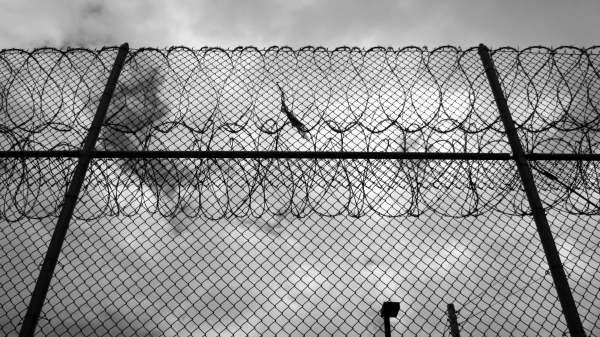On Monday afternoon, Gov. Ivey signed into law the Alabama Forfeiture Information Reporting Act, which will shine a light on law enforcement’s often secretive use of civil forfeiture. Senate Bill 191, sponsored by Sen. Arthur Orr, R-Decatur, passed both the House and Senate unanimously during this year’s legislative session.
Civil forfeiture is a practice that allows law enforcement to seize private property they allege has been involved in criminal activity and subsequently keep, sell or destroy it.
In Alabama, law enforcement needs only probable cause to seize property, leaving room for law enforcement agencies to abuse the practice. And according to a report by the Institute for Justice, they could — and can — get away with it. Alabama received a failing grade in all 6 different metrics for forfeiture transparency and accountability.
Police must report what they seize
The new law, SB191, requires law enforcement agencies to enter details of all seizures into a public database. Agencies must report the date, description, and location of the seizure, the agency involved, any arrests connected with the seizure, any claimants, and the disposition of property, as well as the proceeds agencies collected from the forfeiture property. Agencies’ seizure and forfeiture activity, along with the amount of proceeds received, will be aggregated into an annual report by the Alabama Criminal Justice Information Center Commission and made available online. In addition, law enforcement’s civil forfeiture funds will be audited.
SB191 largely tracks what has been collected by the Alabama Forfeiture Accountability System, which is a voluntary reporting database that was announced earlier this year by the Alabama District Attorneys Association. However, both the Alabama Forfeiture Accountability System and the new system created by SB191 do not cover how law enforcement agencies spend their forfeiture money, which is “generated and spent outside the normal appropriations process and evades public scrutiny,” according to a release from the Institute for Justice.
“By itself, improved transparency cannot fix the fundamental problems with civil forfeiture—namely, the property rights abuses it permits and the temptation it creates to police for profit,” said Jennifer McDonald, an IJ research analyst who co-authored the transparency report. “Though limited, the Alabama Forfeiture Information Reporting Act is a welcome first step for keeping both the public and legislators well-informed about civil forfeiture in Alabama.”
This law comes at the heels of a new study from the Institute for Justice released earlier this month which indicates that civil forfeiture does not help police fight crime.
Because agencies receive 100 percent of all proceeds from the forfeited property in Alabama, there is an incentive for law enforcement to seize. The study found that when local economies suffer, forfeiture activity increases, which suggests that forfeiture is used as a way for agencies to improve their bottom line.
“This study shows Alabama policymakers can undertake serious and much-needed forfeiture reforms without jeopardizing police effectiveness,” said Lee McGrath, IJ’s senior legislative counsel. “This study also confirms what experienced legislators in Alabama have long known: The state’s forfeiture laws encourage the pursuit of revenue over the pursuit of public safety and justice. In the next session, we urge the Alabama Legislature to end civil forfeiture and replace it with criminal forfeiture. The legislature should also end forfeiture’s perverse financial incentives and direct forfeiture proceeds to neutral accounts.”
Criminal forfeiture is a system that requires a conviction, typically of a felony, for property to become subject to forfeiture in most situations. Currently, 16 states have criminal forfeiture laws, and the Southern Poverty Law Center is pushing for Alabama to follow suit.
Alabama is now the 23rd state to enact requirements to report and track seizures and forfeitures since 2014.
Supreme Court weighs in
The new law also comes shortly after a critical Supreme Court case regarding civil forfeiture, Timbs v. Indiana.
In the case, Tyson Timbs pleaded guilty to selling $225 of heroin to undercover police officers. In addition to being sentenced to house arrest, probation and to pay $1,200 in fees and fines, state officials seized Timbs’ Land Rover, worth $42,000. His car was purchased with money from his father’s insurance policy.
On Feb. 20, the Supreme Court, ruled unanimously 9-0 that the 8th Amendment limits states and localities’ ability to seize property. The state violated the Excessive Fines Clause of the 8th Amendment.
“Even absent a political motive, fines may be employed ‘in a measure out of accord with the penal goals of retribution and deterrence,’ for ‘fines are a source of revenue,’ while other forms of punishment ‘cost a state money.’ This concern is scarcely hypothetical,” Ginsburg wrote.






















































